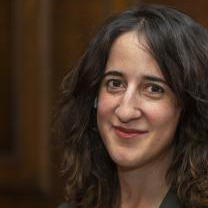
Rochelle Terman is an assistant professor in the Department of Political Science at the University of Chicago. She specializes in international norms and human rights. Her first book, The Geopolitics of Shaming: When Human Rights Pressure Works—and When It Backfires, was published in 2023 with Princeton University Press. Terman has also produced work on gender, Islamophobia, and computational social science. She is currently a faculty affiliate with the Center for Middle Eastern Studies, the Center for the Study of Gender & Sexuality, the Committee on International Relations, and the Program on Computational Social Science.
Terman earned her B.A. from the University of Chicago, and Ph.D. in Political Science with a designated emphasis in Gender & Women’s Studies from the University of California, Berkeley. She joins the University of Chicago from Stanford University, where she was a post-doc at the Center for International Security and Cooperation.
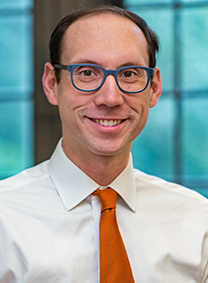
Paul Staniland is Professor of Political Science. He is also a nonresident scholar in the South Asia Program at the Carnegie Endowment for International Peace. Staniland’s research focuses on political violence and international security, with a regional focus on South and Southeast Asia. His first book, Networks of Rebellion: Explaining Insurgent Cohesion and Collapse, was published by Cornell University Press in 2014. His second book, Ordering Violence: Explaining Armed Group-State Relations from Conflict to Cooperation, was published by Cornell in 2021.
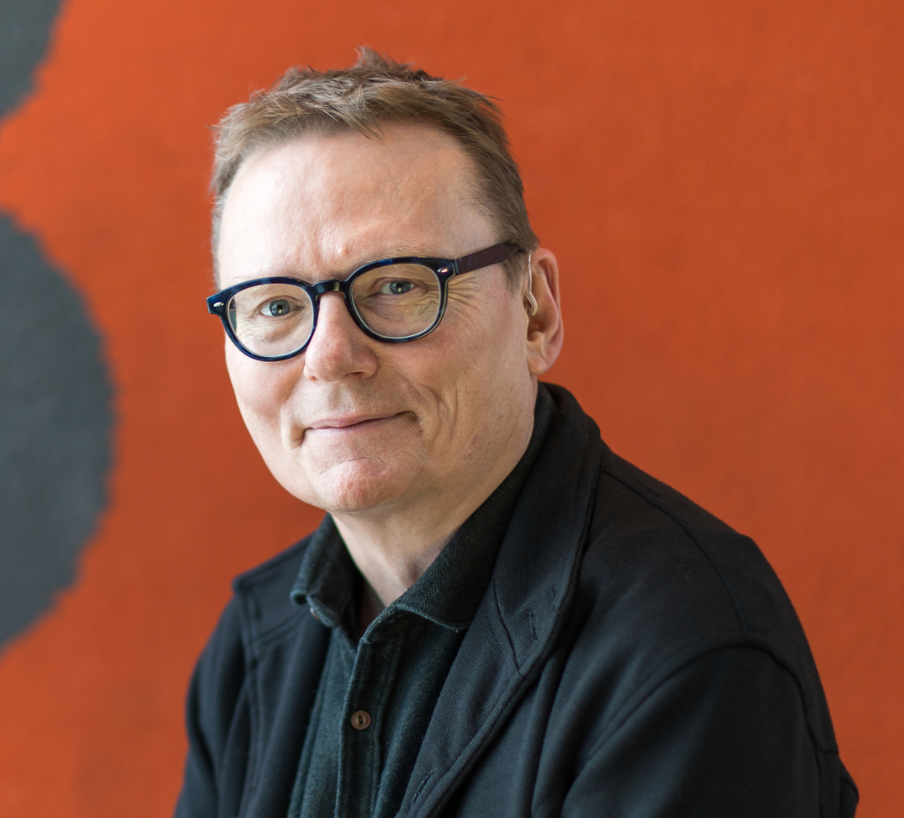
An economist and political scientist, Robinson has conducted influential research in the field of political and economic development and the relationships between political power and institutions and prosperity. His work explores the underlying causes of economic and political divergence both historically and today and uses both the mathematical and quantitative methods of economics along with the case study, qualitative and fieldwork methodologies used in other social sciences.
Robinson has a particular interest in sub-Saharan Africa and Latin America and is a Fellow at the Institute of African Studies at the University of Nigeria at Nsukka. He taught a summer school at the University of the Andes in Bogotá between 1994 and 2022. He has conducted fieldwork and collected data in Bolivia, Colombia, Haiti, the Democratic Republic of the Congo, Nigeria, Sierra Leone, South Africa, and Zimbabwe. He has published three books co-authored with Daron Acemoglu, an Institute Professor of Economics at MIT. The first, Economic Origins of Dictatorship and Democracy, proposed a theory of the emergence of and stability of democracy and dictatorship. Their second book, Why Nations Fail: The Origins of Power, Prosperity, and Poverty (translated into 41 languages since its publication in 2012), pulled together much of their joint research on comparative development and proposed a theory of why some countries have flourished economically while others have fallen into poverty. Their most recent book, The Narrow Corridor: States, Society and the Fate of Liberty, examines the incessant and inevitable struggle between states and society, and gives an account of the deep historical processes that have shaped the modern world.
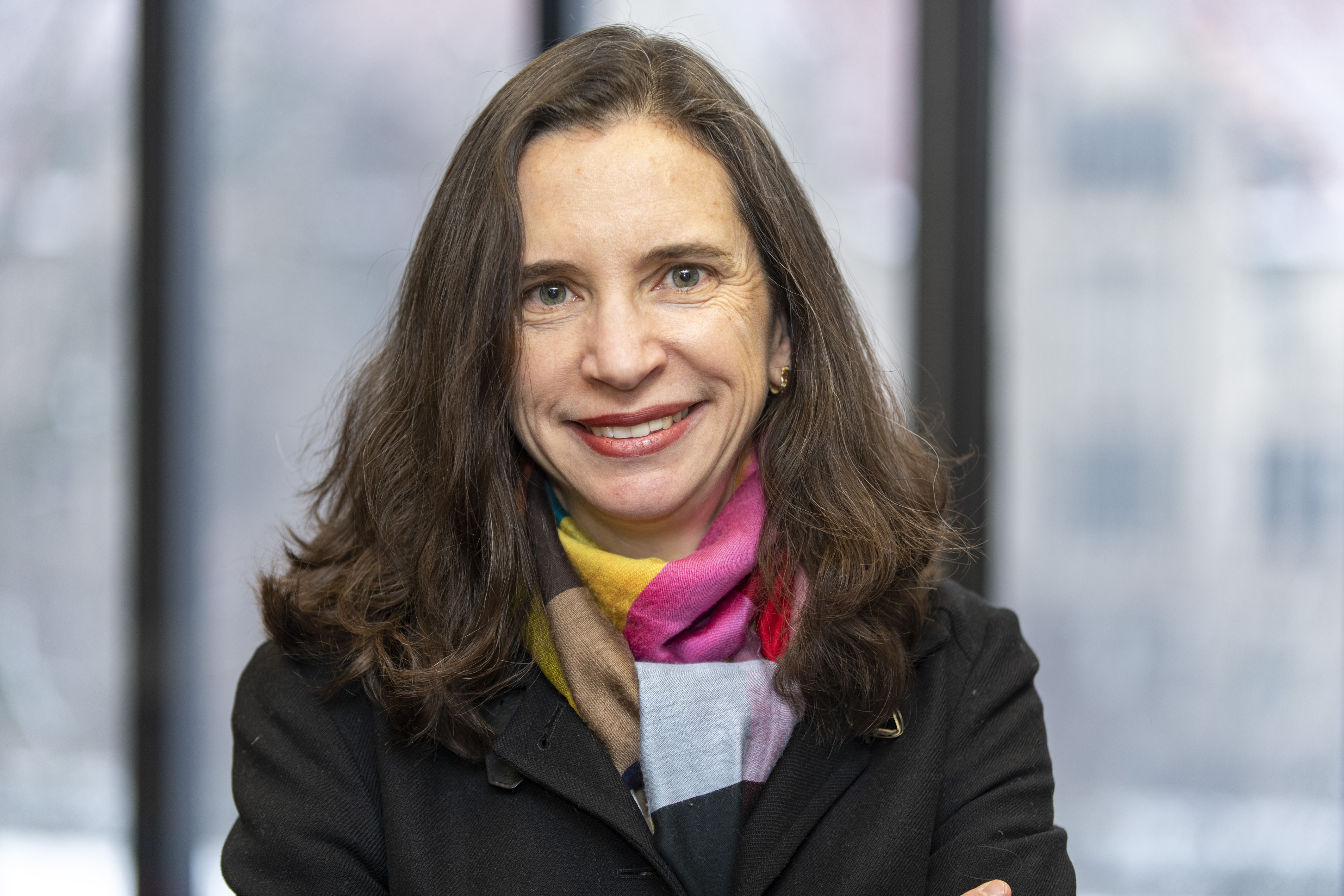
Jennifer Pitts is Professor of Political Science and the Committee on Social Thought and Chair of the Department of Political Science. She is the author of Boundaries of the International (Harvard 2018), which explores European debates over legal relations with extra-European societies during the eighteenth and nineteenth centuries. Her recent edited volumes include Volume 4 (Eighteenth and Nineteenth Centuries) of the Cambridge History of Rights (Cambridge, 2025), co-edited with Dan Edelstein; and W.E.B. Du Bois, International Thought, a collection of essays and speeches spanning the years 1900-1956 (Cambridge University Press, 2022), co-edited with Adom Getachew. She is also author of A Turn to Empire: the rise of imperial liberalism in Britain and France (Princeton 2005); co-editor of The Law of Nations in Global History (Oxford 2017); and editor and translator of Alexis de Tocqueville: writings on empire and slavery (Johns Hopkins 2001). Her research interests lie in the fields of modern political and international thought, particularly British and French thought of the eighteenth and nineteenth centuries; empire; the history of international law; and global justice. She is a co-editor of the Cambridge University Press series Ideas in Context. At the University of Chicago, she is a member of the faculty boards for the Chicago Center for Contemporary Theory (3CT), the Human Rights Program, and the France Chicago Center.
Recent Research / Recent Publications
- Samuel Moyn, Political Theory
http://journals.sagepub.com/doi/full/10.1177/0090591718800752 - Annette Gordon-Reed, TLS
https://www.the-tls.co.uk/articles/public/empire-law/ - Michael Geyer, H-Diplo
https://networks.h-net.org/node/28443/reviews/2844428/geyer-pitts-boundaries-international-law-and-empire - John Ikenberry, Foreign Affairs
https://www.foreignaffairs.com/reviews/capsule-review/boundaries-international-law-and-empire
- “Striking Back,” review of Krishan Kumar, Visions of Empire, Times Literary Supplement, December 5, 2017
- “International relations and the critical history of international law,” International Relations 31.3 (2017), 282-298.
- “International Law,” in Mark Bevir, ed., Historicism and the Human Sciences in Victorian Britain (Cambridge University Press, 2017), 237-261.
- "'That hippopotamus the American people': Livingston’s Damn Great Empires!,” Theory & Event 20.3 (2017), 861–866.
- “The Critical History of International Law,” Political Theory 43.4 (2015), 541–552.
- "Irony in Adam Smith's Critical Global History," Political Theory 45.2 (2017), 141–163 [online 2015].
- "Empire and legal universalisms in the eighteenth century," American Historical Review 117, No. 1 (February 2012), 92-121.
- "Political Theory and Empire," Annual Review of Political Science 13, (2010): 211-35.
- "Boundaries of the International," on the Political Theory Review podcast
- "Tocqueville's America Revisited, Part 2," Ideas, CBC radio, Friday, October 21, 2016.
- “Tocqueville’s America Revisited, Part 1,” Ideas, CBC radio, Friday, October 14, 2016.
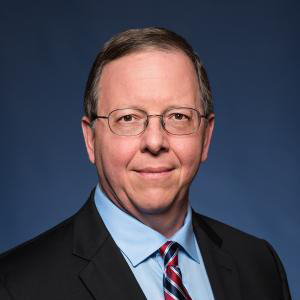
Robert A. Pape is Professor of Political Science at the University of Chicago specializing in international security affairs. His publications include Cutting the Fuse: The Explosion of Global Suicide Terrorism and How to Stop It (Chicago 2010) (with James Feldman); Dying to Win: The Strategic Logic of Suicide Terrorism (Random House 2005); Bombing to Win: Air Power and Coercion in War (Cornell 1996), "Why Economic Sanctions Do Not Work," International Security (1997), "The Determinants of International Moral Action," International Organization (1999); "The Strategic Logic of Suicide Terrorism," American Political Science Review (2003); and "Soft Balancing against the United States," International Security (2005). His recent research includes: “Understanding Campus Fears After October 7 and How to Reduce Them” (CPOST Research Report, March 2024); "The Political Geography of the January 6 Insurrectionists," with Kyle Larson and Keven Ruby, PS: Political Science and Politics (April 2024); “Hamas is Winning: Why Israel’s Failing Strategy Makes the Enemy Stronger,” Foreign Affairs (June 21, 2024): “Understanding the Impact of Military Service on Support for Political Violence,” with Keven Ruby, Kyle Larson, and Kentaro Nakamura, Journal of Conflict Resolution (August 2024). His commentary on national and international security policy has appeared in The New York Times, Washington Post, New Republic, Boston Globe, Los Angeles Times, and Bulletin of Atomic Scientists, as well as on Face the Nation, The Whole Story with Anderson Cooper, ABC News, CBS News, CNN, Fox News, and National Public Radio. Before coming to Chicago in 1999, he taught international relations at Dartmouth College for five years and air power strategy for the USAF's School of Advanced Airpower Studies for three years. He received his PhD from the University of Chicago in 1988 and graduated summa cum laude and Phi Beta Kappa from the University of Pittsburgh in 1982. His current work focuses on the causes of suicide terrorism and the politics of unipolarity. He is the director of the Chicago Project on Security and Threats.
Recent Research / Recent Publications
"The Political Geography of the January 6 Insurrectionists," with Kyle Larson and Keven Ruby, PS: Political Science and Politics, Vol. 57, Issue 2 (April 2024): 1-11.
"Days of Action or Restraint? How the Islamic Calendar Impacts Violence," with Michael Reese and Keven Ruby, American Political Science Review 111, No. 3 (2017): 439-59.
"When Duty Calls: A Pragmatic Standard for Humanitarian Intervention," International Security 37, No. 1 (Summer 2012): 41-80.
Cutting the Fuse: The Explosion of Global Suicide Terrorism and How to Stop It (University of Chicago Press, 2010).
Dying to Win: The Strategic Logic of Suicide Terrorism (Random House, 2005).
"Soft Balancing Against the United States," International Security 30, No. 1 (Summer 2005): 7-45.
Bombing to Win: Air Power and Coercion in War (Cornell University Press, 1996).
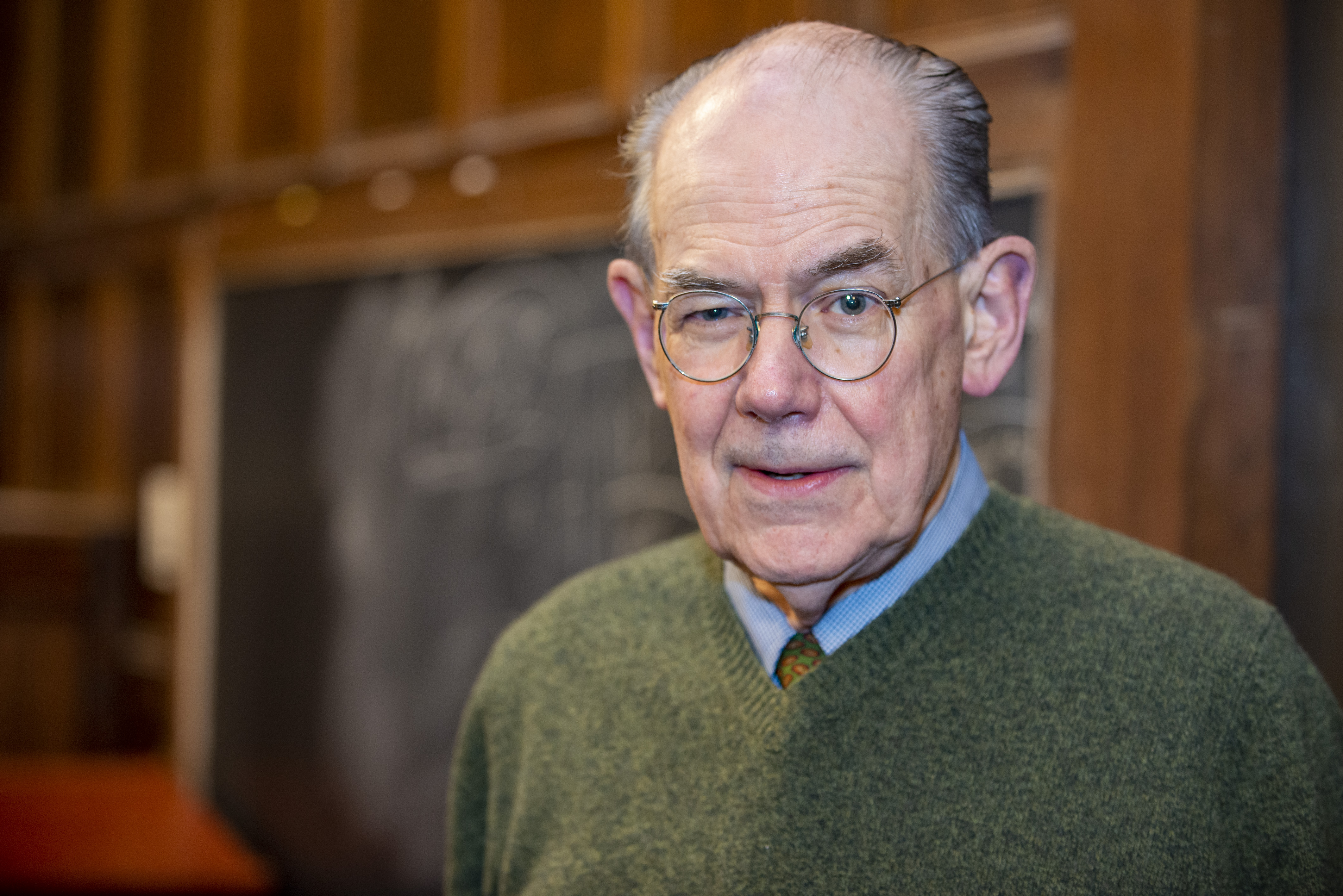
John J. Mearsheimer is the R. Wendell Harrison Distinguished Service Professor of Political Science at the University of Chicago, where he has taught since 1982. He graduated from West Point in 1970 and then served five years as an officer in the U.S. Air Force. He then started graduate school in political science at Cornell University in 1975. He received his PhD in 1980. He spent the 1979-1980 academic year as a research fellow at the Brookings Institution, and was a post-doctoral fellow at Harvard University's Center for International Affairs from 1980 to 1982. During the 1998-1999 academic year, he was the Whitney H. Shepardson Fellow at the Council on Foreign Relations in New York.
Professor Mearsheimer has written extensively about security issues and international politics more generally. He has published six books: Conventional Deterrence (1983), which won the Edgar S. Furniss, Jr., Book Award; Liddell Hart and the Weight of History (1988); The Tragedy of Great Power Politics (2001, 2014), which won the Joseph Lepgold Book Prize and has been translated into nine different languages; The Israel Lobby and U.S. Foreign Policy (with Stephen M. Walt, 2007), which made the New York Times best seller list and has been translated into twenty-four different languages; Why Leaders Lie: The Truth about Lying in International Politics (2011), which has been translated into twelve different languages; and The Great Delusion: Liberal Dreams and International Realities (2018) which has been translated into five different languages.
He has also written many articles that have appeared in academic journals like International Security, and popular magazines like Foreign Affairs and the London Review of Books. Furthermore he has written op-ed pieces for newspapers like the New York Times and the Financial Times dealing with topics like Bosnia, nuclear proliferation, US policy towards India, the failure of Arab-Israeli peace efforts, the folly of invading Iraq, the causes of the Ukrainian crisis, and the likelihood of Iran acquiring nuclear weapons.
Finally, Professor Mearsheimer holds a number of awards and honors. He received the Clark Award for Distinguished Teaching when he was a graduate student at Cornell in 1977, and he won the Quantrell Award for Distinguished Teaching at the University of Chicago in 1985. He was selected as a Phi Beta Kappa Visiting Scholar for the 1993-1994 academic year. In that capacity, he gave a series of talks at eight colleges and universities. He received honorary doctorates from universities in China, Greece, and Romania; and in 2003, he was elected to the American Academy of Arts and Sciences.
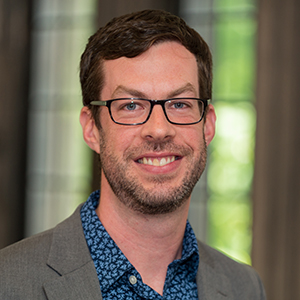
Austin Carson is Associate Professor of Political Science at the University of Chicago. His research addresses the role of secrecy and intelligence in International Relations theory, international conflict, and global governance. He is the author of two books: Secret Wars: Covert Conflict in International Politics (Princeton University Press, 2018) and Secrets in Global Governance: Disclosure Dilemmas and the Challenge of International Cooperation (Cambridge University Press, 2020, coauthored with Allison Carnegie). He has published articles in International Organization, American Journal of Political Science, Security Studies, and other venues. His books and articles have won numerous awards including the Lepgold Prize for Book of the Year, the Robert O. Keohane Award, ISA’s Best Security Article Award, and the Best Book Award from APSA’s International Collaboration section. He received his Ph.D. from Ohio State University in 2013.
Recent Research / Recent Publications
Secrets in Global Governance: Disclosure Dilemmas and the Challenge of International Cooperation. With Allison Carnegie. Cambridge University Press, Cambridge Studies in International Relations Series. 2020.
Secret Wars: Covert Conflict in International Politics. Princeton University Press, Princeton Studies in International History and Politics. 2018.